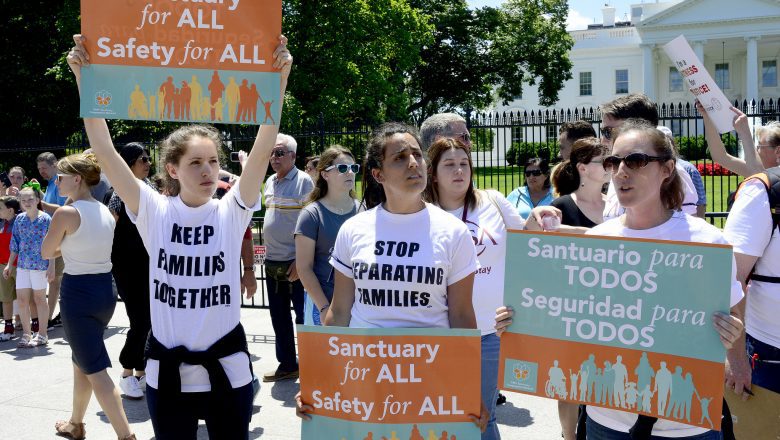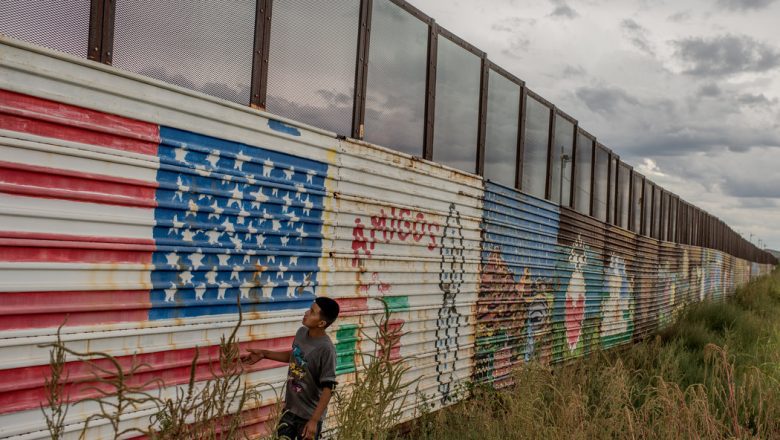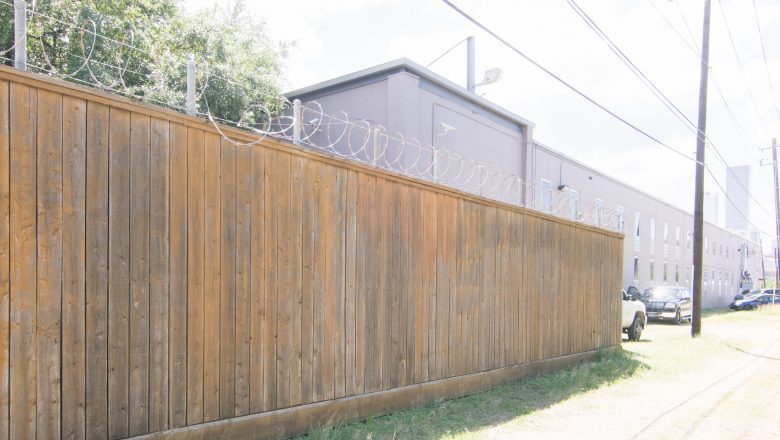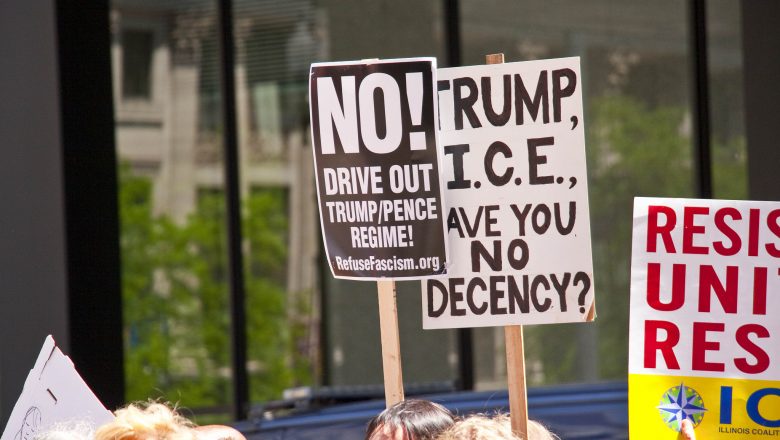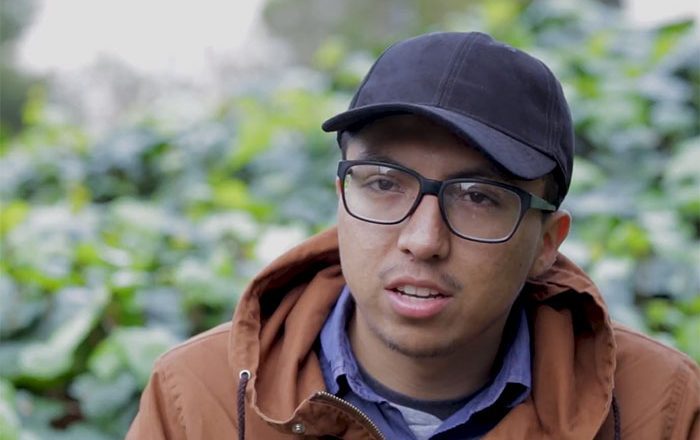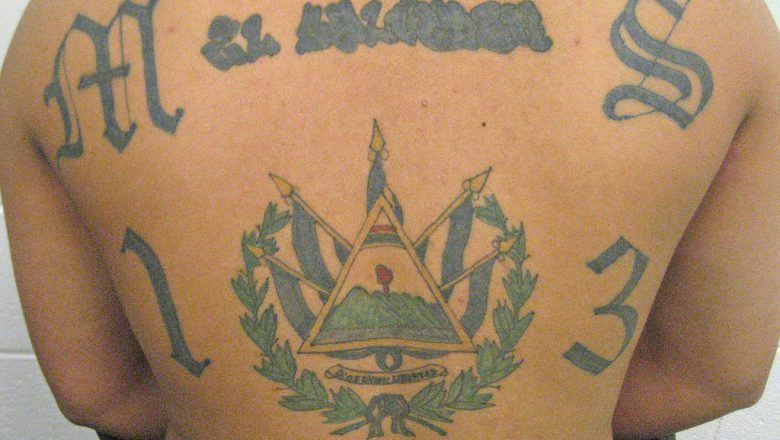Share this story:
When I arrived at Casa Vides, a migrant shelter in El Paso Texas, I found a two-story brick building close enough to the border that I could walk to it. The building was almost a perfect cube shape, and as I knocked on the heavy wooden door, I wondered to myself, “Is this really where undocumented migrants are being housed?”
But I wasn’t there to interview migrants this time — Casa Vides wouldn’t permit me to talk to any of them in order to protect their privacy. I was there to talk to two college students who live and work with the migrants for the summer.
Casa Vides is a place that provides refuge for two types of people: those who evaded border patrol, and those who were caught — handed over to Immigration and Customs Enforcement — and then released while their cases are still pending. Casa Vides provides food, shelter, and legal support to around 40 residents at a time and is run by the faith-based non-profit organization, Annunciation House.

19-year-old Daniel Rottenborn and 20-year-old Francis Brockman are both volunteering at Casa Vides for the summer. Both are students at University of Notre Dame. Daniel’s mother is an immigrant from South America, “So this issue has always been close to my heart,” he said.
Francis says he’s here because he has been taking a lot of Spanish classes and wanted to put that to use — but that’s not the only reason.
“Just the situation with immigration today, like, the political climate, it was something that I wanted to explore and learn more about,” he said. “So I feel like coming to the border was a pretty obvious choice.”
At this shelter, there are families, and a number of teens — and that’s an interesting experience for a young volunteer like Francis.
“Sometimes there will be people that come into the house that are 19 or 20, like around our age, and they already have kids with them,” he said. “So that’s just an entirely different situation that I cannot even imagine at this point in my life.”

Francis and Daniel have heard from teens here — some of whom crossed illegally instead of through a port of entry — about fleeing all kinds of violence on their journeys. What little they say, says a lot.
“You see this 16-year-old kid. He’s with his family. You know he has he has a bed he has food for the first time in a while. And you know you’re just sitting there quiet,” Daniel said. “You know it strikes me is vastly different than the experience of a normal, American teenager.”
Francis and Daniel could have gotten more typical summer jobs. Francis says his other option was working at a bagel shop back home in Ohio. Now, for the past month, the two have been living in Casa Vides and sharing a room adjacent to the migrants’ rooms. They spend their time doing chores from cooking to cleaning to organizing games.
They showed me around the shelter. Downstairs in the basement were many of the donations such as clothes, shoes, and baby supplies.

Daniel says he and Francis aren’t trained on how to work with babies and children. The shelter’s goal is to promote independence and allow parents to do what they do best: parent.
“The resiliency that we see from these kids when they come into our house and they start playing with the toys and immediately, it’s like you flip a switch on,” Daniel said.
“They go from scared kids hiding behind their parents to just kids.”
This past weekend, a bus pulled up and 32 undocumented parents got off. With a few small belongings, including papers, they quietly walked into Casa Vides, greeted by staff with hugs. The parents had been separated from their children at the border. Their criminal cases were dropped after Trump reversed his policy on family separation.
Casa Vides tells migrants they can stay at the shelter as long as they want. Many will connect with family members in the U.S. and move out to live with them while they wait for their day in court.
Borderzine, a student-driven news site that covers border life in El Paso, contributed to this reporting.
Related Coverage
Life With A Deported Parent
Zola Cervantes, 17, knows the impact deportation can have on a family first hand. Her dad was deported when she was 11. This story was produced by Youth Radio in collaboration with Boyle Heights Beat.
What Young People Are Saying About the Family Separation Policy
Outrage over the Trump administration separating children from their parents at the U.S.-Mexico border is boiling over. Here’s a selection of young people’s tweets about it.
What Happens When Families Are Separated at the U.S.-Mexico Border
A yearlong in-depth investigation finds several human rights violations at the Mexican border including families being ripped apart.
5 Horrors Migrant Children are Facing in U.S. Detention
Children who haven’t been convicted of any crime are being subjected to prison-like conditions in the U.S., where they were seeking a better life.
Worried About ICE Raids? Here’s How Teens Can Help Their Families Prepare
We asked an immigration attorney how young people could help their families prepare for any upcoming immigration actions in the Bay Area.
Answers to All Your Questions About the Trump Administration’s Zero Tolerance Border Policy
Outrage has erupted over families being separated at the U.S.-Mexico border and photos of children being held in detention centers. Here are the facts.
Detained By Border Patrol, Determined To Fight For Immigration Reform
Earlier this year, UC Berkeley student Luis Mora was detained by border patrol. Now, he’s back and on a mission.
What is MS-13? The Gang Donald Trump Can’t Stop Tweeting About
What’s up with MS-13?

